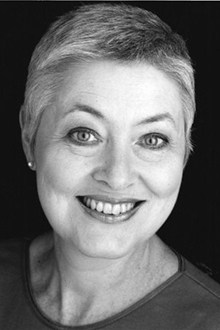
Georgia author and human rights activist Lillian E. Smith will be brought to life in a performance by local actress and Emory University theater professor emeritus Brenda Bynum on Monday, March 31 at 7 p.m. in the Schwartz Center Theatre Lab. The performance is free and open to the public.
Bynum put together "Jordan Is So Chilly: An Encounter with Lillian Smith" based on writings by the author of "Strange Fruit" (1944), the story of an interracial love affair, and "Killers of the Dream" (1949), a book about the detrimental effects of segregation.
'Strange Fruit' banned in Boston
Lillian Smith (1897-1966) was one of the first prominent white southerners to speak out publicly in the 1930s and 1940s against racial segregation and Jim Crow laws. She was already known as a human rights activist when she wrote "Strange Fruit." Her book was banned in some Northern cities and suppressed throughout the South, and while many people who grew up in the South during and after that time know who Smith is, they haven't read the book, Bynum says.
"Her book was banned in Boston, and a lot of the play is about how and why that happened, but that just made her famous," Bynum says. "Her book was not banned in the South, but it was suppressed – bookstores wouldn't sell it, newspapers wouldn't write about it. Very few people in the South have read it or even heard of it."
Retelling Lillian Smith's story
Bynum became interested in presenting Smith's story when she was asked a few years ago by the Lillian E. Smith Center for Creative Arts in Clayton, Ga., to put together a reading of some of Smith's letters as an event for the Southern Literary Trail, an informal tour of Georgia writers' homes. After reading through Smith's letters at the center, Bynum spent time looking through the author's papers, housed at the University of Georgia's Hargrett Rare Book and Manuscript Library.
"At that point, there was no question in my mind that I wanted to do more – the material was so interesting to me," Bynum says. "And she was such an extraordinary woman, her name needed to be known. I wanted to do what little I could to make her name known again."
Bynum's program draws from Smith's unpublished autobiographical writing from the UGA collection as well as a few passages from her books. She premiered the program in April 2013 for the Lillian Smith Center in Clayton and has performed it several times since then, at Georgia State University and UGA, among other venues. ("Jordan is so chilly," a line from an African American spiritual about crossing the Jordan into the promised land, was the original title of Smith's controversial novel; she agreed to change it to "Strange Fruit" at the request of her publisher, Bynum says.)
John Bugge, Emory professor emeritus of English, will present the prologue and epilogue for the March 31 performance.
Smith correspondence at Emory
Emory's Manuscript, Archives, and Rare Book Library (MARBL) holds a small portion of Smith's papers from 1940-1962 that includes correspondence, printed material and a manuscript. Bynum says she hopes to look at MARBL's collection of Smith's papers in the weeks before her Emory performance to see if there is any information she can incorporate into her program.
"It has meant so much to me to have access to original documents, and that's what these kinds of research libraries provide," Bynum says.
Bynum is retired from the Emory theater studies department but remains active in the emeritus college and in local theater. She has given dramatic readings from the letters of Georgia writer Flannery O'Connor at Emory, and she played Violet Weston in the Atlanta premiere of "August: Osage County" at the Alliance Theater.
"We are so pleased to have Brenda Bynum here to bring Lillian Smith to life and make people aware of this groundbreaking Southern writer, especially during Women's History Month," says Ginger Smith, director of external affairs for the Emory Libraries. "As a woman speaking up in support of civil rights decades before the well-known movement of the 1950s and 1960s, she was ahead of her time. I hope this performance inspires people to read her books and come to MARBL to look through her papers."
The presentation is co-sponsored by the Emory Libraries, MARBL, and Emory's Center for Women.
The Schwartz Center for the Performing Arts is located at 1700 N. Decatur Rd., Atlanta, GA 30322. Parking is available in the Fishburne and Lowergate South decks.
